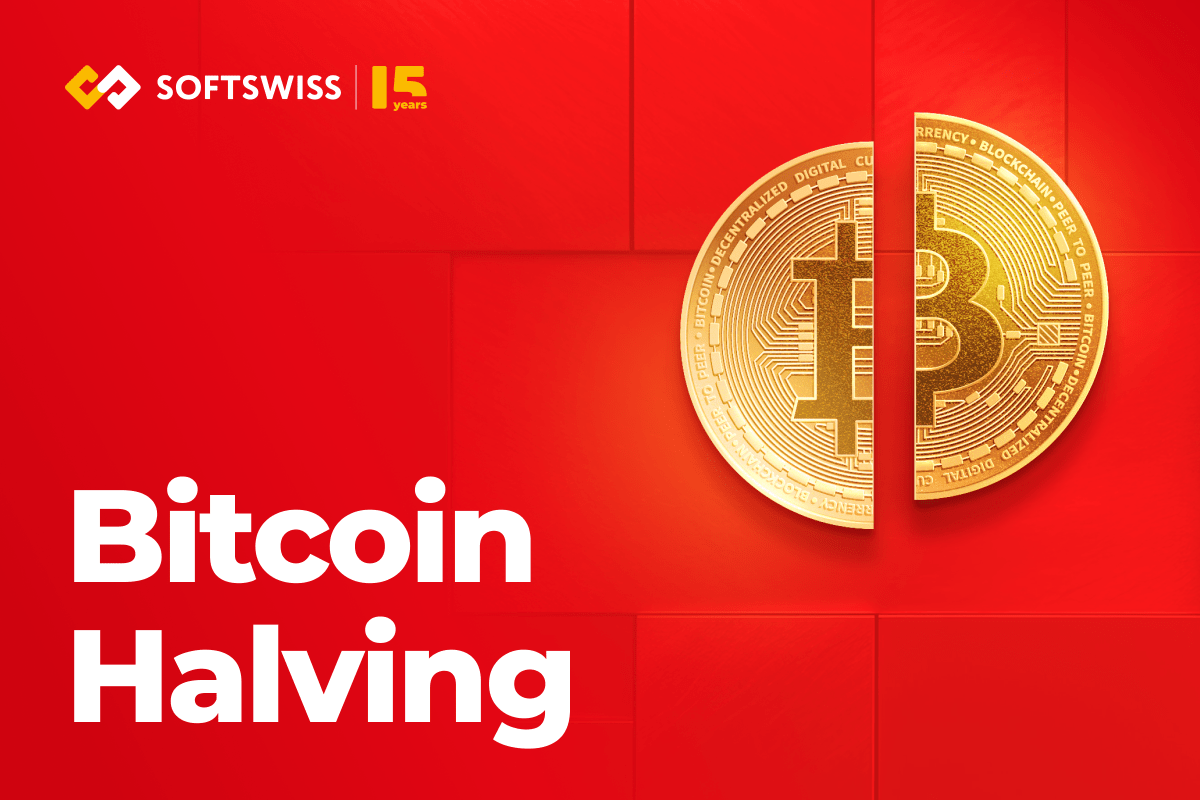In March 2024, Bitcoin soared to a historical high, nearing 70,000 euro per coin. How does this impact the iGaming market? Being a tech company with over 15 years of experience and an innovator in crypto iGaming software development, SOFTSWISS shares anticipations in its quarterly crypto analysis.
Over 220 brands powered by the company engaged in crypto transactions during the first quarter of 2024, which is 12% higher than the previous quarter. SOFTSWISS experts analyse the data gathered from crypto-friendly brands by employing extrapolation, comparative, and correlative analysis.
iGaming Market Overview: Unveiling Anticipated Growth
The size of the global online gambling and sports betting industry is expected to rise significantly and exceed 170 billion euro by 2032, according to Statista. Based on SOFTSWISS data, the iGaming market has demonstrated a stable pattern of growth year after year.
In absolute terms in euro, the Total Bet Sum grew by 5.8% in the first quarter of the year compared to the last quarter of 2023. Analysing the year-on-year increase, comparing Q1’24 with Q1’23, the growth is more impressive, showcasing a 47.2% boost.
Simultaneously, the Total Bet Count, both fiat and crypto, displayed a slightly larger gain in the first quarter of 2024 compared to the previous quarter, surpassing 6.1%. The indicator’s year-on-year boost is much more notable, revealing a 57.2% increase.
The popularity of iGaming in recent years has been fuelled by its global reach and accessibility due to constant technological advancements. On one hand, the quality of internet connectivity continues to rise, while on the other, new payment methods are emerging, simplifying payment procedures.
The in-depth quarterly analysis, ongoing since the beginning of 2022, reveals that fiat bets are undergoing more substantial growth compared to crypto bets. In Q1’24, the Fiat Bet Sum increased by 6.9% compared to Q4’23, while the rise of Crypto Bet Sum was at 2.4%.
The more active growth of fiat bets led to a slight decrease in the share of crypto. In the first quarter of 2024, the crypto share in the Total Bets Sum settled at 24.4%, decreasing by 0.8 percentage points (p.p) compared to the last quarter of 2023.
What is the State of Crypto in iGaming?
Analysing crypto bets, it is crucial to highlight that almost 93% of them are facilitated through the in-game currency conversion tool, which is gaining traction. This mechanism allows operators to engage players with cryptocurrency assets in games initially tailored for fiat only. Operators that adopt such options are gaining more competitive advantages in the market.
While the Q1’2024 Crypto Bet Sum shows a moderate 2.4% growth compared to the previous quarter, the year-on-year analysis demonstrates a 20.8% increase. The Crypto Bet Count remained unchanged in Q1’24 compared to the previous quarter’s indicator. Simultaneously, the metric increased by 21.3% year-on-year. The figures speak volumes, showcasing a consistent interest among players in crypto gaming.
“The lack of a substantial increase in the number of crypto bets during Q1’24 can be partly attributed to the significant rise of the Bitcoin exchange rate during this period, leading players to be more cautious with their crypto bets. This trend mirrors the situation in the first quarter of the previous year when the Bitcoin exchange rate surged following a decline at the end of 2022,” comments Vitali Matsukevich, Chief Operating Officer at SOFTSWISS.
What Distinguishes the Average Crypto Bet?
The average crypto bet increased to 1.71 euro in the first quarter of the year from 1.66 euro in the last quarter of 2023. This growth correlates with a significant strengthening of the Bitcoin rate during the first quarter of 2024.
The average fiat bet remained steady at around 0.81 euro in Q1’24 and Q4’23. The average total bet stayed constant since the second half of the previous year and is equal to 0.93 euro.
Notably, the average crypto bet is double that of fiat. This indicates that digital currencies are preferred by higher-income players.
Why Did Bitcoin’s Share Drop?
The Top Five most operated digital coins in iGaming have remained stable during the last two years with minor changes in ranking order. The top still includes Bitcoin, Ethereum, Litecoin, Dogecoin, and Tether.
In Q1 2024, Bitcoin experienced a significant decline of 9.4 p.p. compared to Q4 2023. This could be attributed to the bolstering Bitcoin exchange rate and players exercising a more cautious approach towards it.
In contrast, the shares of other digital coins have increased. Ethereum and Litecoin showed growth of 4.0 p.p. and 3.8 p.p., respectively, during the same period. Simultaneously, Dogecoin rose to fourth place in the ranking, leaving Tether behind.
Vitali Matsukevich, Chief Operating Officer at SOFTSWISS, summarises: “The benefits of employing digital currencies, such as fast transactions and anonymity, still attract many players. Embracing cryptocurrencies in iGaming can boost operator profits despite their volatile nature.
As the Bitcoin rate is expected to strengthen after the Bitcoin Halving, the average crypto bet and projected gains may see a notable impact. During such promising times, it is crucial to have reliable and experienced partners to navigate the path to success.”
About SOFTSWISS
SOFTSWISS is an international tech company supplying software solutions for managing iGaming projects. The expert team, which counts over 2,000 employees, is based in Malta, Poland, and Georgia. SOFTSWISS holds a number of gaming licences and provides one-stop-shop iGaming software solutions. The company has a vast product portfolio, including the Online Casino Platform, the Game Aggregator with thousands of casino games, the Affilka affiliate platform, the Sportsbook Platform, and the Jackpot Aggregator. In 2013, SOFTSWISS was the first in the world to introduce a Bitcoin-optimised online casino solution.
The post Navigating Bitcoin’s Impact: SOFTSWISS’ iGaming Industry Overview appeared first on European Gaming Industry News.











